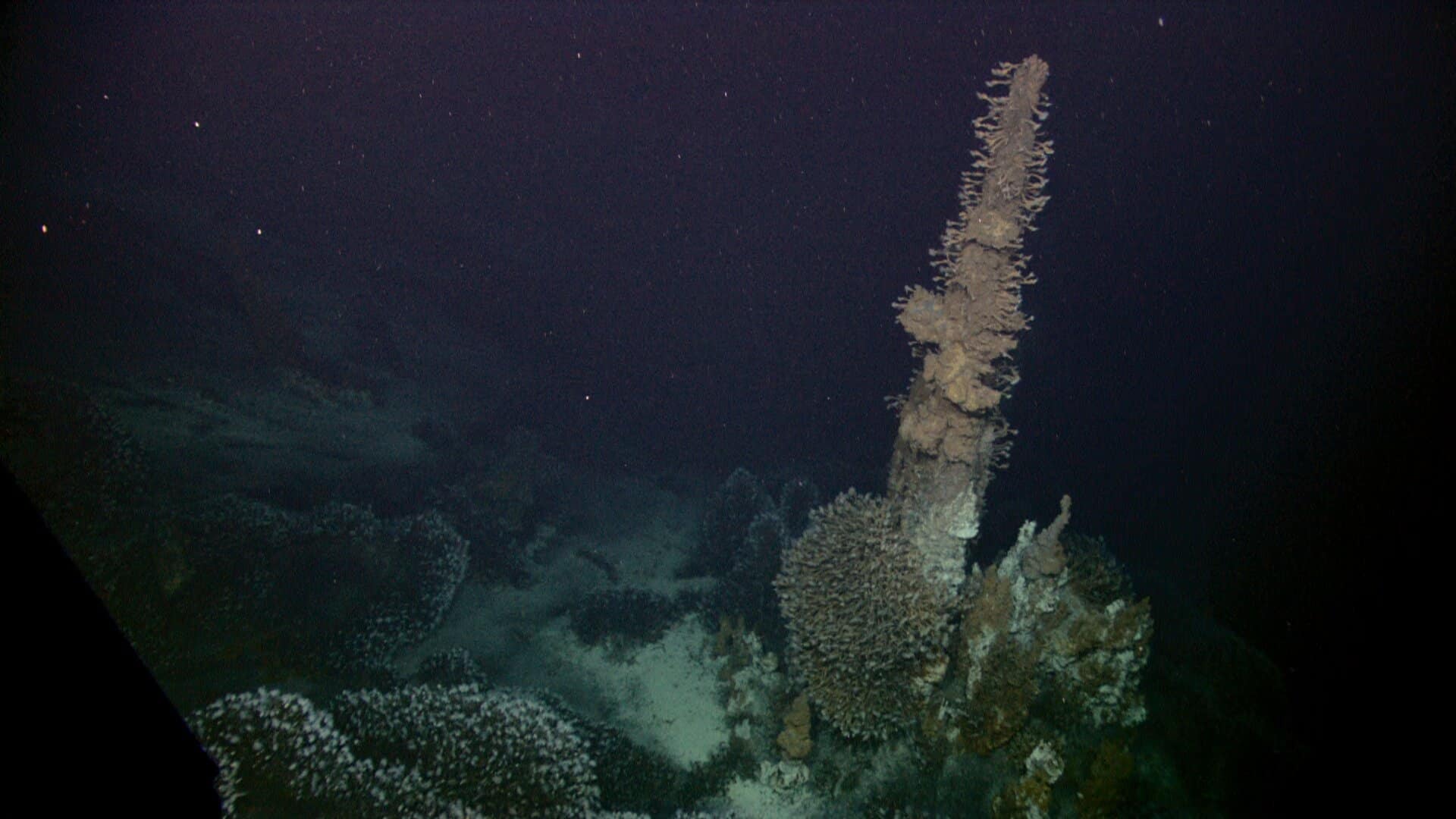

Scientists have uncovered millions of deep-sea eggs near an underwater volcano off Canada’s west coast, an area once thought too cold to support life.
The rare discovery, first made in 2023, has continued to attract scientific and public attention. Lead researcher Cherisse Du Preez of Fisheries and Oceans Canada called the finding extraordinary.
“The whole thing is wild,” she said. “It challenges what we consider possible for life on this planet.” Du Preez confirmed that more detailed findings are expected to be published in a Canadian government science report.
The eggs belong to the Pacific white skate, a pale, wide-eyed species related to sharks. These animals can live nearly two miles below the ocean’s surface.
Researchers located the eggs in a deep-sea nursery near the top of a dormant volcano, where warm water seeps from underground vents.
“Ours were the first dives on the volcano,” Du Preez said. “No one knew the ancient underwater volcano was active, let alone emitting heat.” She described the moment as striking: giant golden eggs blanketed the warm seabed.
“And this geothermally heated hot spot was covered in giant eggs. We think the main nursery is home to 2.6 million golden eggs that take up to 10 years to incubate.”
The heat from the volcano plays a crucial role. According to Du Preez, the skates likely lay their eggs near the vents because the added warmth supports their development in the cold, deep sea. “To grow big, strong animals, some warmth helps,” she said.
According to Live Science, hot, mineral-rich fluids from the volcano raise the surrounding water temperature, making the environment more hospitable for certain deep-sea species.
Researchers also captured footage of a female skate laying her eggs for the first time, a moment Du Preez described as surreal. “It’s out of this world,” she said, noting that more than 90% of Earth’s livable space lies in the deep sea.
Du Preez also shared a video of the expedition, showing a robotic arm gently lifting one of the glowing eggs from the seabed. The footage offers a rare glimpse into one of the ocean’s least explored habitats.
The discovery reveals insights into deep-sea life and highlights how much of Earth’s underwater world remains unknown. Scientists say continued exploration of these extreme environments could reshape our understanding of where and how life can thrive.
